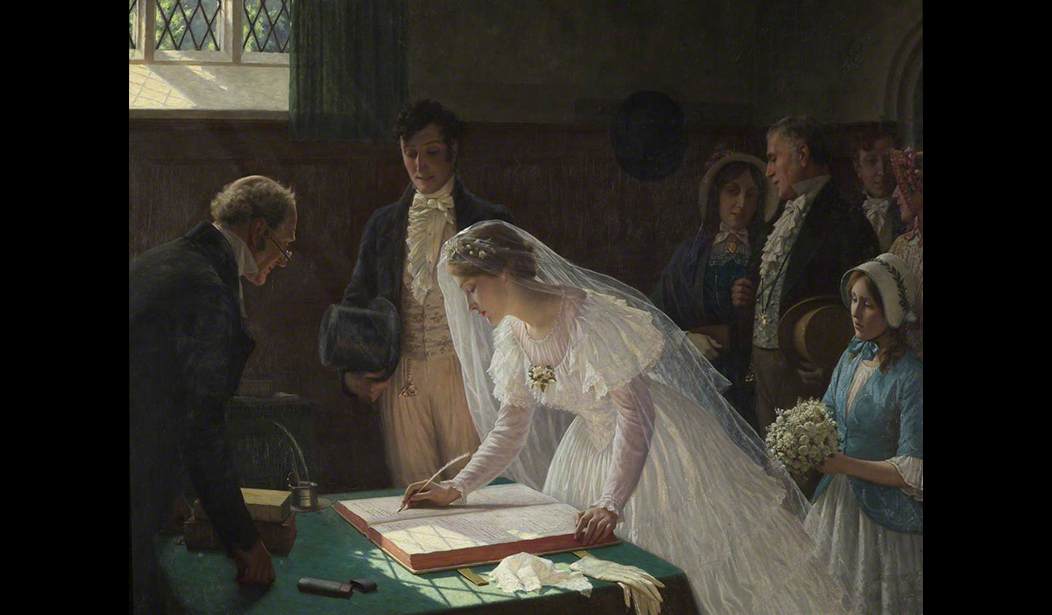Family is important. Family structures are a big part of what makes us human. We are largely defined by our family; our spouses, our kids, and our grandchildren. They bring our lives great meaning, so it's not surprising to see that people who have stable marriages and children are happier than people who lack those things; although, one may ask, is it the marriage that enables stability and happiness, or is it the stability and happiness that brings about the marriage and family?
The Institute for Family Studies recently released the results of some survey work demonstrating that happiness is strongly correlated with marriage and family. I'm pretty sure that's true; it certainly bears out my own experience. But, not surprisingly, I have some thoughts.
The 2022 edition of the General Social Survey (GSS)—the nation’s preeminent social barometer—reveals that marriage and family are strongly associated with happiness. The GSS shows that a combination of marriage and parenthood is linked to the biggest happiness dividends for women. Among married women with children between the ages of 18 and 55, 40% reported they are “very happy,” compared to 25% of married childless women, and just 22% of unmarried childless women.
Nevertheless, it is important to note that unmarried mothers are the least likely to be very happy: with just 17% of them indicating they are very happy. These results parallel findings from 2020 and 2021 during the pandemic that we reported last year in The Atlantic. In earlier surveys, we found that women who were married with children were generally the happiest and the least lonely.
But what about men? Is the link between happiness, marriage, and parenthood similar for men? Indeed, the 2022 General Social Survey indicates that marriage is also linked to greater happiness for men ages 18-55. And here again, married fathers are happiest.
That's a pretty strong correlation, yes. But here's the thing; correlation doesn't always equal causation. Other studies also show that people who finish school, get married, and have children, in that order, tend to be more successful and happier in life.
Research tells us that education, work and marriage — especially marriage prior to having children — are crucial to realizing the American dream and achieving happiness. The clearest path to achieve this for young people is by following the steps of the “success sequence.” This three-pronged sequence encourages young adults to get at least a high school degree, work full time in their 20s and, if they have children, marry first.
I have no doubt about that correlation, either.
Again, correlation doesn't always equal causation. I doubt that things are that simple, following the rote "school-marriage-children" being the automatic (or even, if you'll forgive the term, the semi-automatic) runway to success. I think there's more to it than that.
Don't get me wrong; it's heartening to see the figures above, wherein 40 percent of married women with children describe themselves as "very happy." But note that they are compared to unmarried mothers, who are the least likely to be very happy, with just 17 percent describing themselves thus.
Correlation or causation?
Some of both, probably. I think that disciplined and responsible people tend, also, to follow these patterns, because they plan, make goals, and generally think ahead. It’s a common shibboleth, especially among people on the right, to note that people who follow traditional structures – education first, then marriage, then family – tend to do better economically. I don't think, though, that this is necessarily a causal relationship. It is not merely following that pattern that produces the good outcome of happiness and prosperity; it is that people who see the long term, who delay gratification, who plan and then act, are also more likely to follow traditional social patterns -- many of which also require the discipline to delay gratification -- to plan and then act.
If you look at people who share your own life, you’ll certainly see plenty of examples. I know I have cousins and other relatives who have “struggled” with poverty, mostly due to bad decision-making and demand for immediate gratification; I bet most of you readers know of similar examples.
A few days ago I wrote some thoughts about the various things that make a marriage work. But what kind of person values those things? I'm not a social scientist (a fact for which I am daily grateful). But I would estimate, again, that the kind of people who are trustworthy, committed, considerate, and so on, are also the kind people who - as noted above - see the long term, who plan and then act, are also more likely to follow traditional social patterns.
These kinds of things are always kind of nebulous. It's not something you can put a control on. Accepted scientific methods don't apply. But correlation does not equal causation, and at least in some cases, I'm pretty sure the cause/effect chain runs the opposite of how these studies suggest.













